-
2015 Agenda
-
Friday
June 26, 2015
-
3:00 - 6:00 pm
Check-in
-
6:00 - 7:00 pm
Dinner
-
7:00 - 8:00 pm
Welcome and introductory activities
-
8:00 - 9:00 pm
The Science of a Meaningful Life (Dacher Keltner)
-
Saturday
June 27, 2015
-
7:00 - 7:45 am
Optional yoga/optional hike
-
7:00 - 8:15 am
Breakfast
-
8:15 - 8:30 am
Introduction to the day
-
8:30 - 10:15 am
Summer Institute for Educators: Purpose and Meaning (Vicki Zakrzewski)
-
10:15 - 10:30 am
Break
-
10:30 - 12:00 pm
Reclaiming our Biological Endowment for Kindness (Emiliana Simon-Thomas)
-
12:00 - 12:30 pm
Discussion & reflection
-
12:30 - 2:00 pm
Lunch
-
2:00 - 5:00 pm
Impact of Trauma in Education (Rony Berger)
-
5:00 - 6:30 pm
Dinner
-
6:30 - 9:15 pm
Play for Educators
-
Sunday
June 28, 2015
-
7:00 - 7:45 am
Optional Tai Chi/optional hike
-
8:30 - 10:20 pm
Minority Status, Education, & the Greater Good (Rudy Mendoza-Denton)
-
10:20-10:40 am
Break
-
10:40 - 12:30 pm
Discussion & reflection
-
2:00 - 5:00 pm
Forgiveness (Fred Luskin)
-
5:00 - 5:30 pm
Discussion & reflection
-
5:30 pm
Dinner & free time
-
Monday
June 29, 2015
-
8:30 - 11:30 am
Mindfulness in Education (Meena Srinivasan)
-
11:30 - 12:30 pm
Discussion & reflection
-
2:00 - 3:00 pm
Self-Care (Brooke Lavelle-Heineberg)
-
3:00 - 3:20 pm
Break
-
3:20 - 5:00 pm
Emotions, Empathy, & Compassion (Emiliana Simon-Thomas)
-
Tuesday
June 30, 2015
-
8:15 - 8:45 am
Introduction to the day
-
8:45 - 10:00 am
Panel of past participants
-
10:00 - 10:20 am
Break
-
10:20 - 11:30 am
Integrating what we’ve learned into our personal & work lives
-
11:30 - 12:30 pm
Sharing our ideas with each other
-
2:00 - 3:00 pm
Organizational Transformation (Monica Worline & Chris Murchison)
-
3:00 - 3:15 pm
Break
-
3:15 - 4:30 pm
Taking it home
-
4:30 - 5:00 pm
Discussion & Reflection
-
5:00 - 6:00 pm
Dinner
-
6:00 - 9:30 pm
Inside Out Screening at Pixar!!!
-
Wednesday
July 1, 2015
-
8:15 - 9:00 am
Introduction to the day
-
9:00 - 9:45 am
Gratitude for Educators (Emiliana Simon-Thomas)
-
9:45 - 10:00 am
Break
-
10:00 - 11:00 am
Open Space
-
11:00 - 12:00 pm
Closing activities
-
12:00 pm
Check out of rooms
- Venue: Clark Kerr Campus, UC Berkeley
- Date: Friday, June 26—Wednesday, July 1, 2015
-
Price: $2200, which includes tuition, lodging, meals, & materials. Partial scholarships are available.
-
The science is clear: Integrating social-emotional learning into the classroom and our schools is good for both students and the adults who work with them.
But why is social-emotional learning (SEL) good for us? How does the practice of SEL improve our overall well-being--including our ability to learn, prevent burnout, and develop positive relationships? How can we cultivate these social-emotional skills in both our students and ourselves and encourage colleagues around us to do so as well? What gets in the way of developing our social and emotional competencies, and how can we overcome those challenges?
 This six-day, five-night retreat gives education professionals from all over the world the opportunity to hear some of the world’s leading experts on how to cultivate social and emotional well-being within ourselves and our students. In addition to lectures, participants will engage in deep self-reflection, thought-provoking discussions, and strategy sessions.
This six-day, five-night retreat gives education professionals from all over the world the opportunity to hear some of the world’s leading experts on how to cultivate social and emotional well-being within ourselves and our students. In addition to lectures, participants will engage in deep self-reflection, thought-provoking discussions, and strategy sessions.
Participants will leave empowered with cutting-edge, science-based social-emotional strategies, tools, and techniques to implement this important aspect of student and teacher development in their school environments. They will also leave with a deeper understanding of who we are as human beings.
To apply, please click on the “Application” tab and fill out the on-line form. The application deadline was midnight on January 1, 2015. Applications submitted after January 1st will automatically be placed on the wait list.
Groups of three or more from the same school and/or district will receive a 10% discount per person.
Institute Leaders
 Vicki Zakrzewski, Ph.D., is the education director at the Greater Good Science Center and a former teacher and school leader.
Vicki Zakrzewski, Ph.D., is the education director at the Greater Good Science Center and a former teacher and school leader.
 Brooke Lavelle-Heineberg, Ph.D., is a senior program officer at the Mind and Life Institute and co-founder of the Cognitively-Based Compassion Training program at Emory University.
Brooke Lavelle-Heineberg, Ph.D., is a senior program officer at the Mind and Life Institute and co-founder of the Cognitively-Based Compassion Training program at Emory University.
Who Should Attend?
Pre-K through university-level educators, counselors, psychologists, and school and district-level administrators who are interested in cultivating the social-emotional well-being of students and the adults who work with them.
Testimonials
"The institute was the best I have ever attended. The leadership and conference design have been impeccable. You guys are so attuned to the needs and predilections of teachers."
"I have never been to a conference where educators were treated with such respect and professionalism and compassion."
"Armed with some powerful tools, I am returning to the teachers, mentors, and administrators I work with more passionate than ever about SEL. Determined to make changes in my organization, I now feel I have the resources and collective community to do this effectively. This has been an honor and I know the experience will have a ripple-effect in my field."
"Hard to imagine a more meaningful, impactful professional development experience as an educator."
"Inspired, heart is full, mind is blown with new insights/resources/information. Heart is overflowing with gratitude for all of the connections and collaboration, the sense that we are now truly a part of something greater than ourselves. I had no idea how rich and fulfilling this experience would be. While I can't wait to enjoy the remainder of summer break, I truly can't wait to get back to work to put my ideas and inspiration into action."

"This institute has highlighted the importance of a teacher's (my!) mental and emotional health, an idea that so often, in education, is seen as selfish and/or a waste of time."
"I am extremely grateful that the GGSC exists. I benefit from the articles regularly and the Summer Institute for Educators has been an absolute dream come true."
"This conference has raised my level of consciousness to understand that by developing one's self, one creates opportunities to lift the lives of others. By learning to value and love one's self, one has an opportunity to create a world for the greater good."
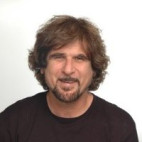
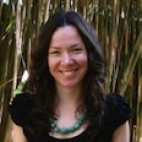

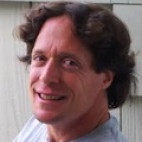
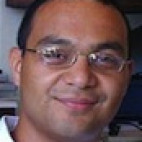
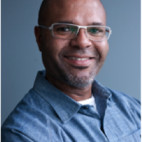

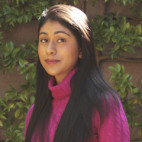
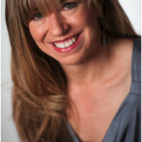
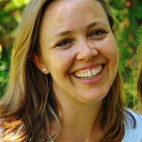
 Housing accommodations are located at the University of California, Berkeley, Clark Kerr Campus--a beautiful Spanish-style complex, highlighted by terra cotta accents, tiled fountains, and landscaped courtyards. Situated in a lovely Berkeley neighborhood, the campus is within walking distance of restaurants, shops, and the UC Berkeley main campus. For outdoor enthusiasts, there are several hiking trails with breathtaking views of the San Francisco Bay directly behind the campus.
Housing accommodations are located at the University of California, Berkeley, Clark Kerr Campus--a beautiful Spanish-style complex, highlighted by terra cotta accents, tiled fountains, and landscaped courtyards. Situated in a lovely Berkeley neighborhood, the campus is within walking distance of restaurants, shops, and the UC Berkeley main campus. For outdoor enthusiasts, there are several hiking trails with breathtaking views of the San Francisco Bay directly behind the campus.